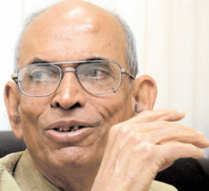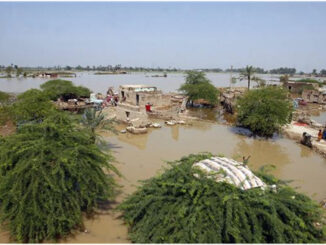
1) Japan has committed to doubling its current investment in India to $35 billion over the next five years. This will be primarily towards developing India’s infrastructure and will involve Japanese firms. The agreement also envisages a doubling of Japanese firms doing business in India.
2) Japan has also pledged $500 million towards the Public-Private Partnership Infrastructure Financing Project to the India Infrastructure Finance Company Limited (IIFCL). Additionally, Japan will also provide about $156 million for the Guwahati Sewerage Project in Assam.
3) Both countries will work towards industrial infrastructure development with the creation of Smart Community projects in six Indian states as part of the Delhi Mumbai Industrial Corridor (DMIC) Project. The DMIC project will involve cooperation in developing power plants, assured water supply, high-volume urban transport, logistics facilities and skill development programmes for youth in regions along the corridor.
4) Ponneri in Tamil Nadu, Krishnapatnam in Andhra Pradesh and Tumkur in Karnataka have been marked as potential industrial nodes, and officials from both countries have been instructed to finalise the Master Plan and the Development Plan of these cities by March 2015.
5) Modi also inked a Memorandum of Understanding (MoU) between the Ministry of New and Renewable Energy of India and the Japan Bank for International Cooperation (JBIC) in the field of new and renewable energy. Both sides have also asked their officials to move forward on the civil nuclear energy program, which has been held up from the Japanese side since India’s nuclear weapons tests in 1998. Additionally, both countries will cooperate on building highly efficient and environment-friendly coal-fired power plants, and on cooperation in Clean Coal Technologies (CCT).
6) India and Japan signed an agreement on the development of the Shinkansen system Bullet trains for India, starting with the Mumbai- Ahmedabad corridor. As part of this deal, Japan will provide technical, financial and operational support for such trains. Japan also said it would help India improve connectivity with its neighbouring countries, besides improving transport routes to the North Eastern states.
7) Japan has agreed to ease foreign end-user entities list for India. As a starter, it has removed 6 Indian space defence-related entities from its restricted list. Both countries will also conduct talks to identify future areas of cooperation.
8) The Joint Working Group will work on speeding up cooperation on the US-2 amphibian aircraft, which will include transfer of the aircraft and its technology to India. Both countries will also work on the roadmap for development of the Indian aircraft industry.
9) Japan will work with India on creating smart cities, starting with the Kyoto-Varanasi project. As part of this, Japan will help India Varanasi – Modi’s Parliamentary constituency – develop urban infrastructure to make it a ‘smart’ city. Japan will also help India improve basic amenities across selected cities.
10) Modi will set up a Special Management Team within the Prime Minister’s Office to deal exclusively with Japanese investment. This special cell will facilitate Japanese investments so that they do not get bogged down in red tape.





Be the first to comment